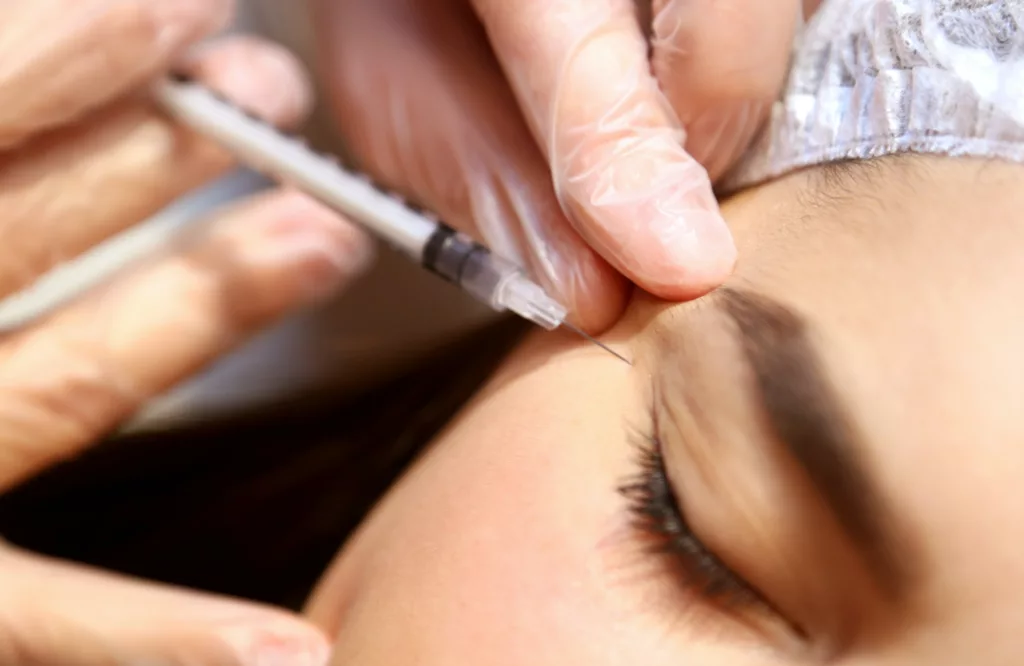
Botox injections are one of the world’s most common minimally invasive cosmetic procedures. The procedure is popular among both women and men for its ability to quickly and noticeably reduce the appearance of fine lines and wrinkles — giving you a beautiful, smoother, and more youthful appearance.
It’s easy to see the popularity of Botox injections when you look at the 4.4 million procedures done in the middle of the pandemic. In comparison, soft tissue fillers — another great choice for non-surgical anti-wrinkle and scar-reducing cosmetic procedures — only totaled 3.4 million procedures in 2020.
One important thing to remember about Botox is that its results are not permanent. The effects will eventually fade away. That’s why many individuals who experience the age-reversing powers of Botox injections schedule maintenance or follow-up sessions, leading to one of the questions we commonly hear from clients: “How often can I get Botox injections?”
How Long Does Botox Typically Last?
To answer that, you first need to know how long Botox effects last. In general, Botox results typically last around three to four months. Take note that individual experiences with Botox may vary. For some people, the effects may only last up to two months, while for others, it can last longer for around four to six months.
Here are some common factors that can influence the duration of your Botox results:
- Muscle strength
- Facial expressiveness
- Metabolism
- Dosage
- Botox quality
- Lifestyle factors
- Skill of the injectionist
- Severity of wrinkles and fine lines
- Treatment frequency or previous experience with Botox
How Often Can You Get Botox Injections?
The frequency at which you can receive Botox injections depends on various factors. The same factors that can affect the longevity of Botox effects can also affect how often you can or need to get Botox injections. This includes the strength of your facial muscles, how expressive you are, and any previous experience with the treatment.
In general though, the answer falls in line with how long the effects would last for you. As the effects typically last around three to four months, it is usually okay to get another Botox treatment within this window.
For optimal results and safety, consult your Botox specialist to determine how often you should receive follow-up sessions. It is essential to communicate your expectations and goals with a qualified Botox specialist who can provide personalized recommendations based on your unique situation.
Do You Need To Wait for the Botox Effects To Wear Off?
There is no need to wait until the results of the previous Botox session wear off completely. In fact, some Botox specialists and dermatologists recommend going for a follow-up treatment or maintenance session once you feel the effects starting to wear off.
When you feel like you are getting movement back in your muscles or starting to see fine lines and wrinkles reappear, it is generally safe to get Botox again. Getting maintenance injections just before the effects wear off makes it easier to maintain or replicate the previous results.
Once you become a regular Botox user, you will likely find that the results last longer over time. Long-time Botox users tend to experience reduced muscle activity and a weakened muscle response to the injections. As a result, you may require less frequent touch-ups compared to first-time users.
What To Expect During a Botox Injections Session
The entire Botox treatment session typically takes around 10 to 15 minutes. Injectionists will typically start with a low dosage and only increase it if your response is positive.
During a Botox treatment session, you can expect the following:
- Consultation: During the initial treatment, your dermatologist or plastic surgeon checks how well the treatment works on your lines and wrinkles. If you have previously had Botox, they will check how well the effects hold up and where to best inject the neurotoxin. Their assessment of how well the injectable works affects their recommendations on when it’s best to come in for your next session.
- Preparation: The specialist will prepare the treatment areas on your face. They will clean the skin to remove any makeup, oil, or debris. If you’re concerned about discomfort, they may apply numbing cream or ice packs to minimize any potential pain or discomfort during the injections.
- Injection: The injectionist will use a fine needle to administer several small injections into the targeted muscles. You may feel a slight pinch or stinging sensation during the injections, but it’s usually well-tolerated and brief.
Are You a Good Candidate for Botox?
While Botox is a widely used treatment without major safety concerns, not everyone is a suitable candidate. Botox injections are typically recommended for individuals who:
- Have noticeable facial wrinkles or lines caused by muscle contractions
- Are in good overall health with no contraindications for the procedure
- Have realistic expectations about the results of Botox
- Are not pregnant or breastfeeding
If you are unsure whether Botox is right for you, it is advisable to schedule a consultation with a qualified Botox specialist. They will assess your specific needs, medical history, and aesthetic goals to determine if you are a suitable candidate for the treatment.
The Bottom Line
To determine the ideal timing for your Botox treatments, it is best to consult with a Botox specialist who can evaluate your unique situation. We will provide personalized recommendations based on your desired outcome, muscle strength, and previous experience with Botox.
Always remember that Botox injections should only be administered by qualified professionals who have the necessary expertise to ensure safety and effectiveness. Prioritize your health and consult a reputable specialist like us to achieve the best results while minimizing any potential risks.

